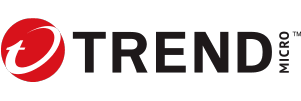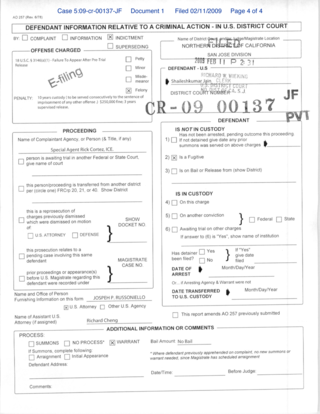Related Research Articles

Cybercrime encompasses a wide range of criminal activities that are carried out using digital devices and/or networks. These crimes involve the use of technology to commit fraud, identity theft, data breaches, computer viruses, scams, and expanded upon in other malicious acts. Cybercriminals exploit vulnerabilities in computer systems and networks to gain unauthorized access, steal sensitive information, disrupt services, and cause financial or reputational harm to individuals, organizations, and governments.

Gen Digital Inc. is a multinational software company co-headquartered in Tempe, Arizona and Prague, Czech Republic. The company provides cybersecurity software and services. Gen is a Fortune 500 company and a member of the S&P 500 stock-market index. The company also has development centers in Pune, Chennai and Bangalore. Its portfolio includes Norton, Avast, LifeLock, Avira, AVG, ReputationDefender, and CCleaner.

Trend Micro Inc. is an American-Japanese cyber security software company. The company has globally dispersed R&D in 16 locations across every continent excluding Antarctica. The company develops enterprise security software for servers, containers, and cloud computing environments, networks, and end points. Its cloud and virtualization security products provide automated security for customers of VMware, Amazon AWS, Microsoft Azure, and Google Cloud Platform.

Scareware is a form of malware which uses social engineering to cause shock, anxiety, or the perception of a threat in order to manipulate users into buying unwanted software. Scareware is part of a class of malicious software that includes rogue security software, ransomware and other scam software that tricks users into believing their computer is infected with a virus, then suggests that they download and pay for fake antivirus software to remove it. Usually the virus is fictional and the software is non-functional or malware itself. According to the Anti-Phishing Working Group, the number of scareware packages in circulation rose from 2,850 to 9,287 in the second half of 2008. In the first half of 2009, the APWG identified a 585% increase in scareware programs.

Kingsoft Corporation is a Chinese software company based in Beijing. Kingsoft operates four subsidiaries: Seasun for video game development, Cheetah Mobile for mobile internet apps, Kingsoft Cloud for cloud storage platforms, and Kingsoft Office Software for office software, including WPS Office. It also produced security software known as Kingsoft Security. The most popular game developed by Kingsoft is JX Online 3, launched in 2009.
ZoneAlarm is an internet security software company that provides consumer antivirus and firewall products. ZoneAlarm was developed by Zone Labs, whose CEOs were Kevin Nickel, Mouad Abid and Shahin and the Company was acquired in March 2004 by Check Point. ZoneAlarm's firewall security products include an inbound intrusion detection system, as well as the ability to control which programs can open outbound connections.

Jain Shaileshkumar, better known as Sam P. Jain, is an Indian internet entrepreneur and former CEO of affiliate marketing network eFront, who is currently a fugitive with an arrest warrant in California. In 2000, eFront submitted fraudulent data to Media Metrix, a website ranking publisher. Former president of eFront Jerry Ziegler accused Jain of deliberately falsifying affiliate data, using tactics such as submitting companies which didn't respond to his affiliate offer as affiliates with the justification that "[i]f they won't respond to me, they won't respond to anyone". In 2001 Jain was involved in a scandal when ICQ instant messaging logs between him and other employees were leaked onto the internet. The logs detailed activities such as not paying websites that had hosted their banner ads and sending legal threats to websites that spoke poorly of eFront. On April 20, 2005, he was ordered to pay $3.1 million to Symantec for selling counterfeit software and violating intellectual property laws.

WinFixer was a family of scareware rogue security programs developed by Winsoftware which claimed to repair computer system problems on Microsoft Windows computers if a user purchased the full version of the software. The software was mainly installed without the user's consent. McAfee claimed that "the primary function of the free version appears to be to alarm the user into paying for registration, at least partially based on false or erroneous detections." The program prompted the user to purchase a paid copy of the program.
Miller Freeman, Inc., was a San Francisco–based publisher of trade books and business magazines, as well as a manager of trade and industry expositions. It was an innovative force in business technology and communications in the 1990s until its breakup in 2000. A substantial part of the company was owned by UBM which is now owned by Informa.
Rogue security software is a form of malicious software and internet fraud that misleads users into believing there is a virus on their computer and aims to convince them to pay for a fake malware removal tool that actually installs malware on their computer. It is a form of scareware that manipulates users through fear, and a form of ransomware. Rogue security software has been a serious security threat in desktop computing since 2008. An early example that gained infamy was SpySheriff and its clones, such as Nava Shield.
Comscore, Inc. is an American-based global media measurement and analytics company providing marketing data and analytics to enterprises, advertising agencies, brand marketers, and publishers.

PC Tools was a software company founded in 2003 and acquired by Symantec in 2008; the new owner eventually discontinued the PC Tools name. Company headquarters were in Australia, with offices in Luxembourg, the United States, United Kingdom, Ireland, and Ukraine. The company had previously developed and distributed security and optimization software for the Mac OS X and Microsoft Windows platforms.
Cision Ltd. is a public relations and earned media software company and services provider. The company is incorporated in the Cayman Islands and headquartered in Chicago, Illinois. Cision offers a portfolio of services including PRNewswire, PRWeb, Brandwatch, Connectively and Canada Newswire.
The Russian Business Network is a multi-faceted cybercrime organization, specializing in and in some cases monopolizing personal identity theft for resale. It is the originator of the PHP-based malware kit MPack and an alleged operator of the now defunct Storm botnet.
Support.com, Inc. is a technical support company for businesses and consumers. It was headquartered in Wilmington, Delaware with an administrative office in Sunnyvale, California. The company's services are performed on Windows, macOS, iOS, and Android, supporting connected and smart devices. These services are performed by the company's remote, full-time workforce based mainly in the U.S.
MS Antivirus is a scareware rogue anti-virus which purports to remove virus infections found on a computer running Microsoft Windows. It attempts to scam the user into purchasing a "full version" of the software. The company and the individuals behind Bakasoftware operated under other different 'company' names, including Innovagest2000, Innovative Marketing Ukraine, Pandora Software, LocusSoftware, etc.
Max Ray Vision is a former computer security consultant and hacker who served a 13-year prison sentence, the longest sentence ever given at the time for hacking charges in the United States. He was convicted of two counts of wire fraud, including stealing nearly 2 million credit card numbers and running up about $86 million in fraudulent charges.

Luxoft, a DXC Technology subsidiary, is represented in 21 countries with 17 000+ employees globally. Luxoft is headquartered in Zug, Switzerland with several large offices in the US, Poland, Germany, India, Ukraine, Singapore, and Serbia.
MacKeeper is a cleanup utility for macOS. MacKeeper was developed by ZeoBIT, later acquired by Kromtech, and is currently owned by Clario Tech.
Clario is a security software development company that offers consumer-facing digital security and privacy applications for use on a range of operating systems including iOS, Android, macOS.
References
- 1 2 Goodman, Marc (2016). Future Crimes. London: Transworld Publishing. ISBN 978-0-552-17080-2.
- 1 2 Finkle, Jim (24 March 2010). "Inside a global cybercrime ring". Reuters . Retrieved 2 January 2021.[ dead link ]
- ↑ "FTC v. Innovative Marketing, Inc., et al" (PDF). 2 December 2008. Retrieved 2 January 2021.
- ↑ "SHAILESHKUMAR P. JAIN" . Retrieved 2 January 2021.
- ↑ "BJORN DANIEL SUNDIN" . Retrieved 2 January 2021.
This article needs additional or more specific categories .(May 2024) |